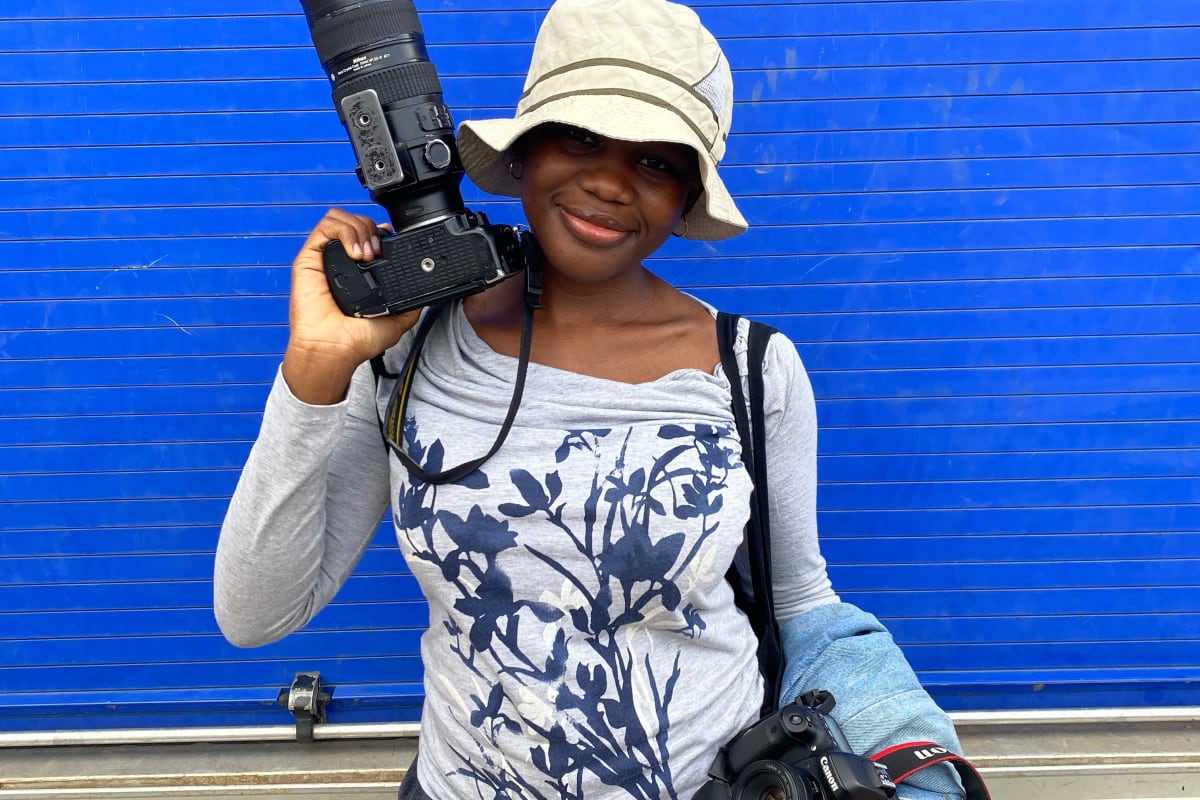The Film Scene in Nigeria: Cinephiles Speak
From intimate screening spaces to Netflix hits, exploring the vibrant world of Nigerian cinema through the eyes of its most passionate viewers.
Publications
From intimate screening spaces to Netflix hits, exploring the vibrant world of Nigerian cinema through the eyes of its most passionate viewers.
Author
Adedigba Damilola
Date
Read
8 mins
Culture
In a country where storytelling runs through its veins, Nigeria's film scene is more than just an industry—it's a cultural revolution in motion.
Picture this: It's a typical Lagos evening, and somewhere in the city, a group of film enthusiasts are huddled in a cozy corner, passionately dissecting the latest Nollywood release. Welcome to Nigeria's thriving cinephile community, where movie magic meets cultural commentary, and everyone has a hot take to share. Nollywood, now firmly planted among the world's top five film producers, isn't just churning out movies—it's crafting cultural phenomena that dominate Netflix charts and pack local theaters. But what does this mean for Nigeria's passionate film lovers? We reached out to the experts themselves: the viewers, the critics, the dreaming filmmakers who live and breathe cinema.
"People who are making films today are too concerned with mechanics - technical things instead of feeling."
Our cinephiles are as diverse as Nigeria itself—product designers, medical students, almost-lawyers, and creatives of all stripes. "Law school this year really cut into my media time!" admits one respondent, scoring themselves a 7.5 on the cinephile scale. Another proudly declares, "I'm a 10, but the capitalism is happening too hard." It's refreshing to see how cinema transcends professional boundaries, creating a tapestry of perspectives as rich as the films they discuss. "Lagos has a thriving community," one enthusiast notes, highlighting the emergence of intimate screening spaces and guerrilla-style film events. The S16 film festival gets multiple mentions—a testament to the growing physical presence of Nigeria's film community. But it's not all rosy: "I think it has shrunk a little," another observer mentions, pointing to the country's economic challenges. "You know, with the whole fast money and lack of world-ending epidemics."
Ask about the cinema experience, and you'll get answers ranging from "spiritual" to "excruciating." One cinephile waxes poetic: "There's just something about seeing something on the big screen with every visual and audio detail, no matter how minute, laid bare." Another has never set foot in a cinema but speaks of the "ethereal" experience through others' eyes. The elephant in the room? Rising ticket prices. "If I could, I'd visit every movie I anticipated," sighs one respondent. "For now, I just wait for Blu-ray releases to enjoy films at home." "Home screenings afford me convenience, no disturbance, opportunity to fast forward or replay as I like, and better snacking choices," argues one movie lover. But there's something magical about the big screen that keeps drawing people back. As one participant puts it, "I watched Dune (Part 1) at home and Dune Part 2 in the cinema, and the latter was the better experience for me."
The conversation around Nollywood sparkles with cautious optimism. "Trapped between the profitability of populism and the ascension of excellence," one cinephile eloquently observes. Another notes, "Nollywood is definitely getting better in terms of production quality and marketing. However, they really need to explore more ambitious stories. And stop stat-padding casts with popular non-actors." When asked about their dream $20 million film project, the answers reveal the depth of creative ambition in Nigeria's film community. From "a reflective historical comedy" to "a western-esque film set in Northern Nigeria," these cinephiles dream big and specific.
The Nigerian cinephile scene isn't just growing—it's evolving. Despite economic challenges and occasional frustrations, there's an undeniable passion that keeps this community watching, discussing, and dreaming. As one respondent puts it, "Reject excess consumerism and set sail to the films of the past." In the end, what emerges is a portrait of a community that's as complex and compelling as the medium they love. They're not just watching movies; they're living them, breathing them, dreaming them into existence. And in doing so, they're writing their own chapter in Nigeria's rich cultural story. To every Nigerian cinephile reading this: Keep watching, keep dreaming, keep creating. The next great Nigerian film might just be brewing in your imagination right now.
Interview

Coltan Kubiangha is a Nigerian Photographer and Storyteller whose practice is focused on documenting people living with visible differences through portraiture, especially from genetic conditions such as Neurofibromatosis and Trichoepithelioma, as a way to create awareness with the intent to improve the manner in which people with these conditions are perceived and treated by society. Tobi Are speaks to them for Taxi and touches topics like their photography, posterity and their projects to document people living with visible difference.
Author
Tobi Are
Duration
11 mins
Essay

Stuck in middle-of-nowhere-probably-isnt-lagos Lagos, Desire O(they/she) thinks every sentiment deserves a conduit. You can find them in front of the dj, in the lab, or writing feverishly, body over pillow in their journal.
Author
Desire O.
Duration
8 mins
Essay

Tosin Okewole (She/Her) is a writer and the founder of Taxi. Her work has appeared in Brittle Paper, Archer Magazine and Oranges Journal. She previously served as a prose editor at Spiritus Mundi Review. She is interested in the complexities of storytelling and works across all forms of prose. This desire to tell important stories led her to launch Taxi, an editorial that uses various mediums to convey narratives. She draws inspiration from authors like Sally Rooney, Teju Cole and Franz Kafka. Outside literature she is a crossword enthusiast with interests in etymology, film and Odunsi’s music. She plans to pursue a degree in mathematical economics when she turns 30.
Author
Tosin Okewole.
Duration
10 mins